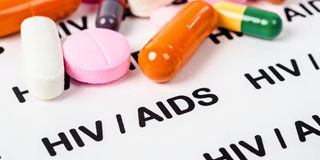ARVs shortage to 'hit remote areas hardest'

Northern Kenya stands to be hit the hardest by the shortage of life-saving Antiretroviral (ARV) drugs that is currently being experienced in Kenya due to a Sh90 million tax impasse.
Health activists have warned that Northern Kenya stands to be hit the hardest by the shortage of life-saving Antiretroviral (ARV) drugs that is currently being experienced in Kenya.
HIV and Aids activist Ms Qabale Tache said the recent tax wrangle between USAid and the State was bound to affect Northern Kenya the most.
“We don’t know what will be our fate as ARVs continue to run out of stock. We are forced to take drugs that can last us for only a few weeks instead of three months,’’ Ms Tache said.
Acute shortage of ARV drugs has hit public hospitals across the country, greatly affecting people living with HIV and Aids.
She explained that persons living with HIV and Aids have been forced to endure reduced doses, with children and unborn babies particularly poised to suffer the most from a Sh90 million tax impasse between Kenya and a US importer of the drugs.
She said that HIV patients in the region were already faced with formidable barriers and that the situation was likely to be aggravated by the stand-off.
Fear of increased viral loads
She said that their greatest fear following the current shortage includes side effects such increased viral loads and the ineffectiveness of therapies should they default the strict observance of Antiretroviral Therapy.
Ms Tache also noted that access to antiretroviral therapy by HIV patients had substantially played a key role in reducing HIV transmission risk, HIV-related morbidity and mortality.
To curb the shortage, she suggested that the government should set aside funds to settle the Sh90 million tax.
The health activist warned that the shortage would affect more than 2,000 patients in Marsabit County, who will be forced to adjust treatment strategies or stop taking their medicine altogether.
The shortage comes just months after the World Health Organization (WHO) said nearly 70 countries were at risk of running out of HIV and Aids drugs due to the Covid-19 pandemic that has interrupted supply chains.
Polygamy and early child marriages have been blamed to be the greatest spreaders of HIV among the pastoralist communities.
Ms Tache also pointed out that counseling and testing among pregnant women and youths was still discouragingly low in Northern Kenya with many shying away due to fear of stigmatisation.
A recently released report indicated that at least 2,577 people are living with HIV and more than 46 deaths are recorded annually in Marsabit County.
The latest statistics from the National Aids and STIs Control Program (NASCOP) show that infections in the county currently stand at 2,577 with only 1,355 on drugs.





